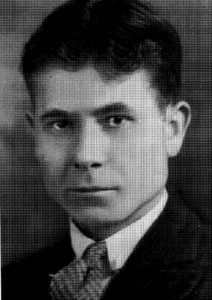Jan sent me to the store to pick up a couple of items, but when I arrived at the checkout line, it became obvious I wasn’t going anywhere quickly. Every lane was filled by people pushing over-flowing grocery carts and the lines extended back down the aisles. I took a deep breath and laughed with the two ladies pushing carts in front of me. “So, this is the express lane?” I quipped. They both took pity on me and waved me to the front of the line. I thanked them profusely and we ended up laughing with the checker. I guess it pays not to lose your temper!

All of this caused me to think about grocery shopping in the Netherlands. (Bet you didn’t see that one coming!) The Daily Star, a British paper, ran this headline: “Jumbo supermarket opens new ‘slow lane’ so lonely customers can stop for a chat.” It then explained how the “Dutch supermarket chain Jumbo has decided to move away from fast-technology checkouts by introducing ‘chat checkouts’ for customers who are not in a hurry.”
The chain store “Jumbo is a member of the National Coalition against Loneliness, which is an initiative of the Netherlands’s Ministry of Health, Welfare and Sport. According to government statistics, more than half of people over 75 in the country, which is 1.3 million people, say they feel lonely.”[1] The aim of the chat checkouts, known as Kletskassa, is to help tackle loneliness in society by having real contact with customers.”
A report on loneliness in America by Harvard reports:
“The global pandemic has deepened an epidemic of loneliness in America. Our report suggests that 36% of all Americans—including 61% of young adults and 51% of mothers with young children—feel ‘serious loneliness.’ Not surprisingly, loneliness appears to have increased substantially since the outbreak of the global pandemic.
“The report also explores the many types of loneliness, various causes of loneliness, and the potentially steep costs of loneliness, including early mortality and a wide array of serious physical and emotional problems, including depression, anxiety, heart disease, substance abuse, and domestic abuse. While Americans clearly need to adopt distancing measures to curb the spread of the novel coronavirus, the report authors argue that we also must take steps to alleviate loneliness, particularly for the populations the survey suggests are most affected.” [2]
We should never discount the important role fellowship plays in our assemblies. Those little chats between the pews and in the foyer are essential to our health. And, the next time you’re in the supermarket, think about walking over to the slowest lane, and make someone’s day: talk!
[1] Simon Hamalienko, Daily Star, October 1, 2021. Downloaded from https://www.dailystar.co.uk/news/world-news/jumbo-supermarket-opens-new-slow-25112892.
[2] “Loneliness in America: How the Pandemic Has Deepened an Epidemic of Loneliness and What We Can Do About It.” Downloaded from https://mcc.gse.harvard.edu/reports/loneliness-in-america










